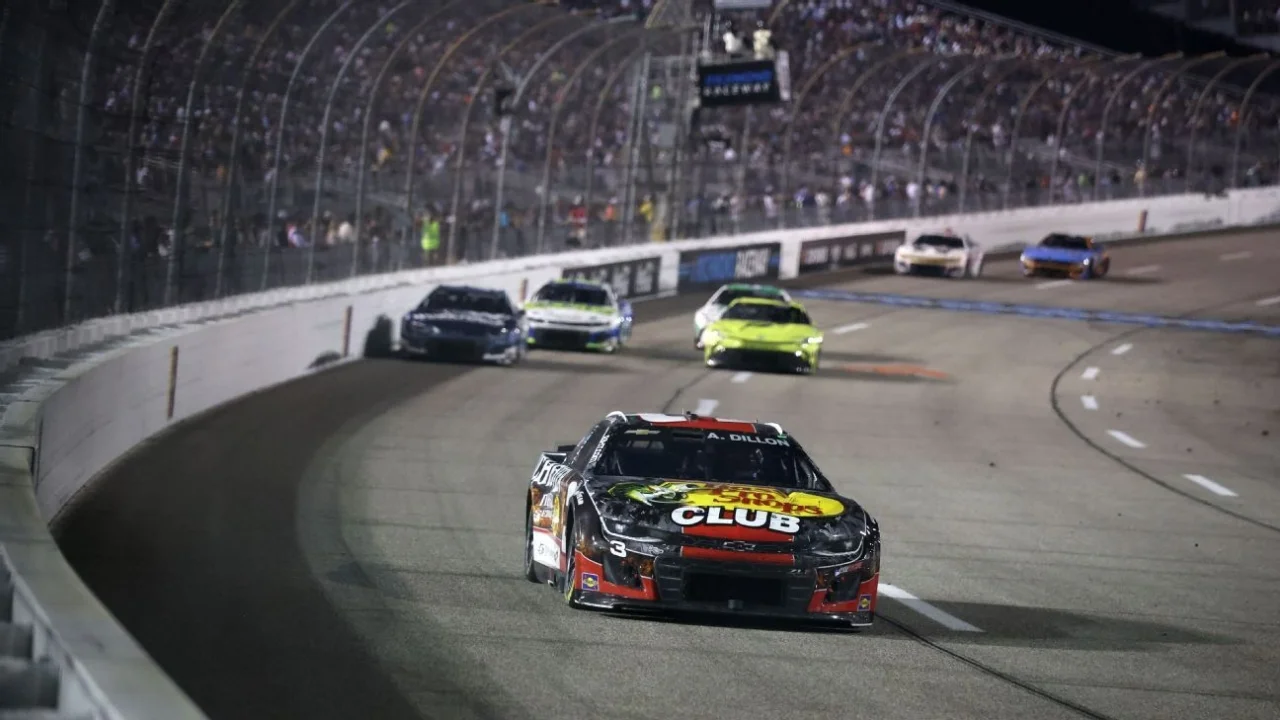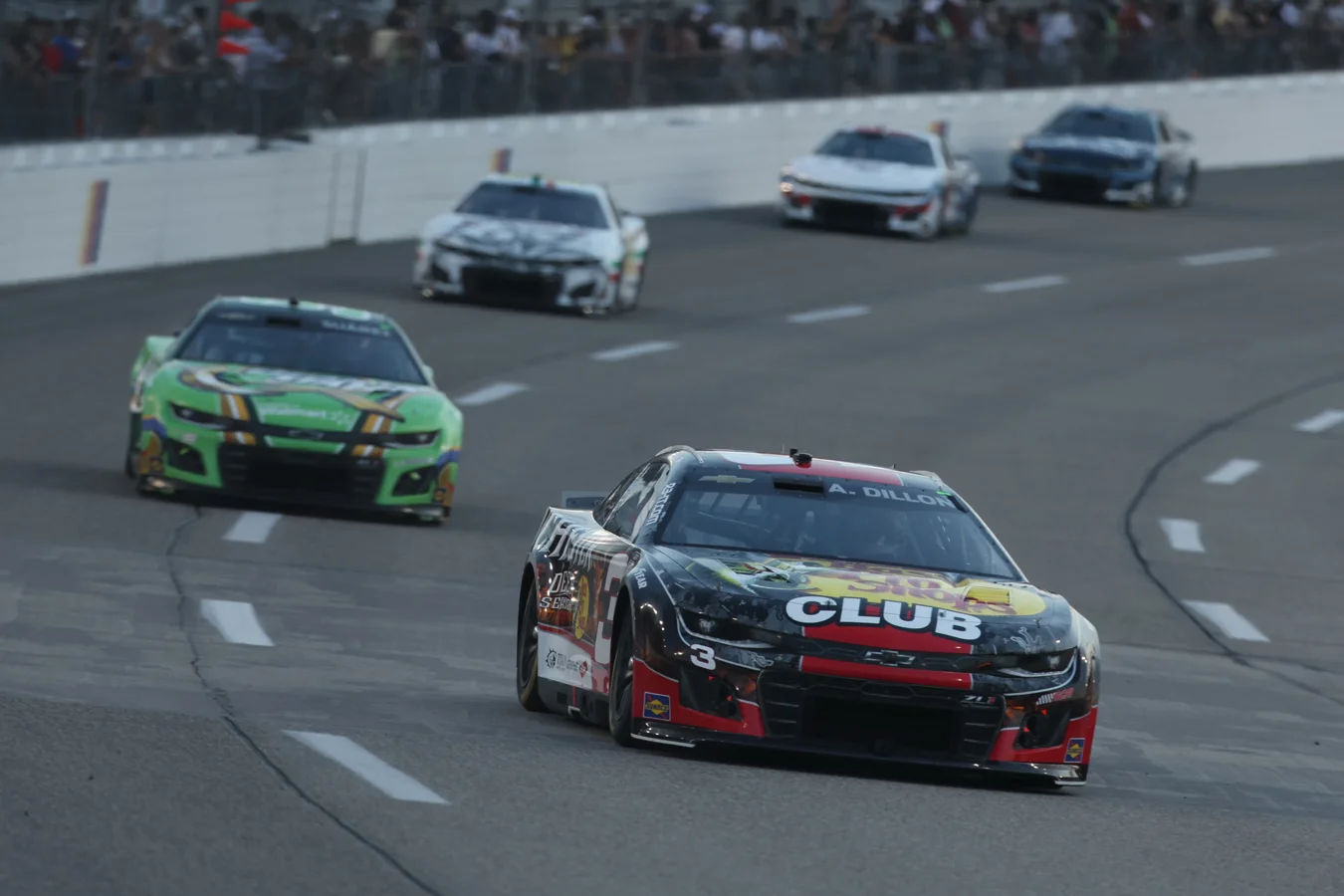After his recent win at Richmond Raceway, Austin Dillon opened up about intense discussions with his grandfather, Richard Childress, regarding Austin Dillon‘s future at Richard Childress Racing (RCR) and the team‘s long-term direction. The conversations shed light on internal conflicts as the next generation becomes increasingly involved in leadership, signaling possible changes for the renowned NASCAR organization.
Generational Tensions at Richard Childress Racing
Richard Childress, who established RCR in 1969 and became a central figure through the championship era with Dale Earnhardt Sr. and later Kevin Harvick, now faces new dynamics within the team. Unlike previous decades, Childress’s grandsons, Austin Dillon and Ty Dillon, are not just racing but also active in decision-making, which has led to a more complex and, at times, unsettled working environment for the family-run operation.
Austin Dillon, considered the heir to lead RCR when Childress eventually steps down, explained that their discussions often become contentious as they navigate the future of the team. The No. 3 Chevy driver emphasized his growing role in both management and competition, which occasionally leads to frustrated exchanges with his grandfather.
We get into arguments to the point of frustration. It’s very hard when he’s your grandfather to have an argument with him because you don’t want to argue about it. There’s certain directions we have to go to move this boat forward, right?
—Austin Dillon, Driver
While Austin and his brother Ty Dillon, who races for Kaulig Racing, both strive to take on more responsibility and alleviate pressure from their grandfather, the process remains challenging. Austin noted that this dynamic is unique because of the personal family ties, which complicate the typical driver-owner relationship seen elsewhere in NASCAR.

I’m constantly pushing him. My brother has stepped in now and trying to help as well. Between the two of us, we want to try to take some of the load off of him as we go.
—Austin Dillon, Driver
The involvement of both brothers in management is becoming increasingly significant, as they work to modernize and propel the organization through a rapidly changing NASCAR landscape, while continuing Childress’s legacy.
Loyalty Versus Adaptation: Richard Childress’s Management Style
One of the main challenges in transitioning leadership at RCR, according to Austin Dillon, is Richard Childress’s commitment to loyalty and tradition. Known in the industry as someone who fiercely protects those around him, Childress’s desire to care for staff and maintain the established order occasionally conflicts with the need for pivotal changes. This steadfast approach, while seen as admirable, can at times impede rapid progress or major team restructuring.
Yeah, but he’s very loyal to a fault almost. He really takes great care of those that are around him. We just push him to try and make change at some point in time.
—Austin Dillon, Driver
The generational divide surfaces as the Dillon brothers advocate for new approaches or decisions, pushing beyond their grandfather’s inclination to preserve longstanding relationships within the organization. Austin described how it typically takes Childress extended periods to embrace these suggestions, highlighting their patience and persistence as they seek to drive RCR forward.
He usually has a way about it where you tell him one thing and he’s going to get upset about it. Then two weeks later turn around, What do you think about this? That’s a great idea, man (smiling). I love that.
—Austin Dillon, Driver
This iterative process of proposing changes, with initial resistance followed by eventual acceptance, forms the basis of a unique, albeit sometimes conflicted, family leadership structure within the team. The dynamics often oscillate between frustration and optimism, with all parties ultimately sharing a commitment to RCR’s continued success.
RCR’s Performance and the Need for Evolution
Despite Richard Childress’s storied record as a team owner—having steered the organization through multiple championships and celebrated drivers like Dale Earnhardt Sr. and Kevin Harvick—recent results indicate a need for strategic transformation. RCR, which once stood atop the NASCAR hierarchy, now grapples with maintaining elite status, even with talented drivers like Kyle Busch and Austin Dillon at the helm.
The organization’s experience of not securing Cup Series victories as often in recent years has brought discussions of leadership succession and future planning to the forefront. Austin and Ty Dillon, who have grown up immersed in the racing culture and management operations, are positioning themselves as the next line of leadership prepared to adapt quickly in response to industry demands.
This internal shift comes at a crucial time, as competitive pressures intensify and the sport evolves. While tradition and loyalty are central to RCR’s heritage, the willingness of the Dillon brothers to challenge old routines signals a pivotal moment for the organization. With both Austin and Ty advocating for more responsibility and innovative decision-making, RCR appears to be entering a transitional phase, balancing its storied past with the pragmatic needs of the present.
Looking Ahead for Austin Dillon and RCR
As the Dillon brothers deepen their managerial involvement, Richard Childress Racing stands at a crossroads. The ongoing debates between Austin Dillon and Richard Childress encapsulate both the strengths and hurdles of a family-operated team, especially when the torch passes from one generation to the next. The way these disagreements resolve—whether with compromise, gradual acceptance, or significant structural changes—will likely shape the trajectory of RCR in NASCAR’s future.
The focus remains on how Austin Dillon’s future at Richard Childress Racing unfolds, particularly as he pushes for evolution while honoring his grandfather’s foundational work. The outcome of these internal negotiations may determine whether RCR can reclaim its reputation as a top contender, adapting to new challenges while preserving the legacy that made it a powerhouse in motorsports. As the season progresses, all eyes will be on the Dillon family and Richard Childress to see how their next chapter unfolds on and off the track.
